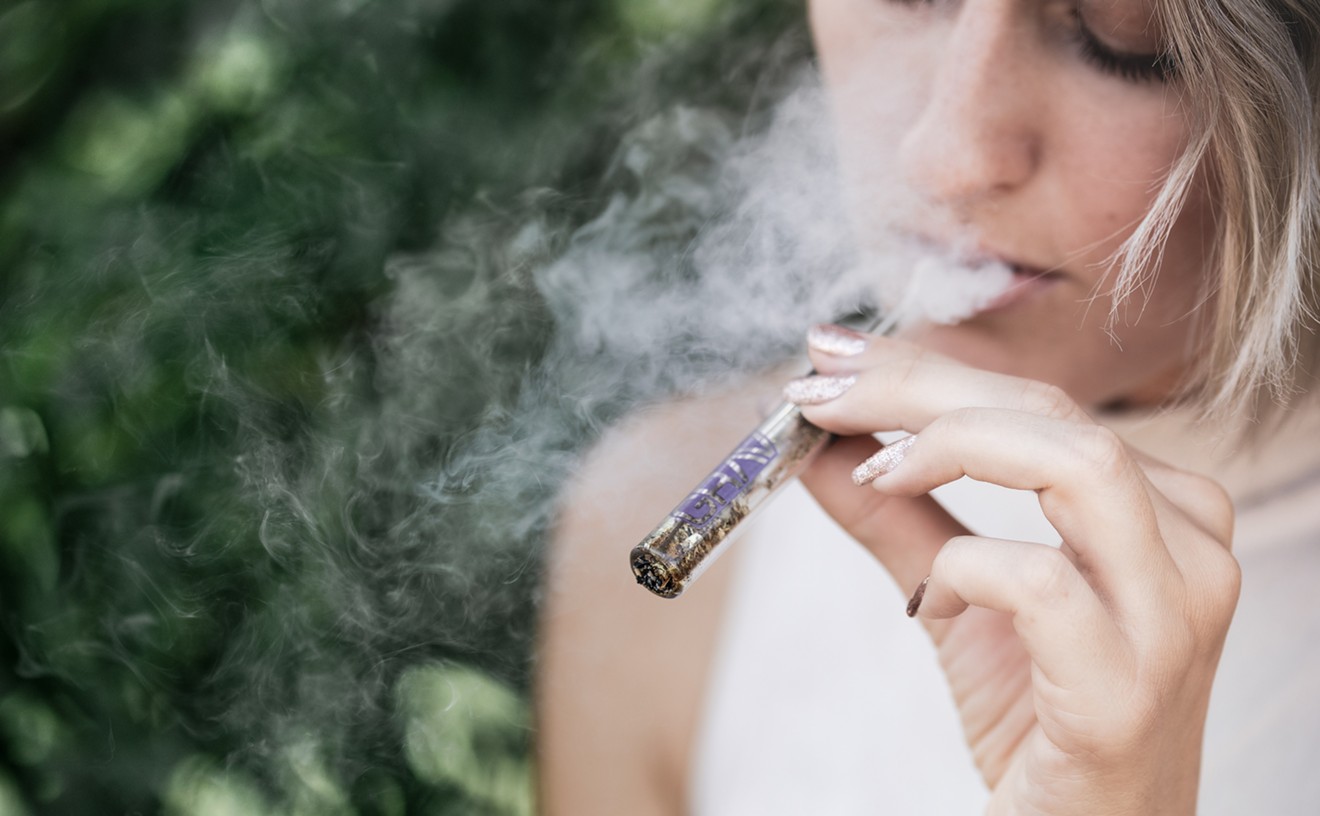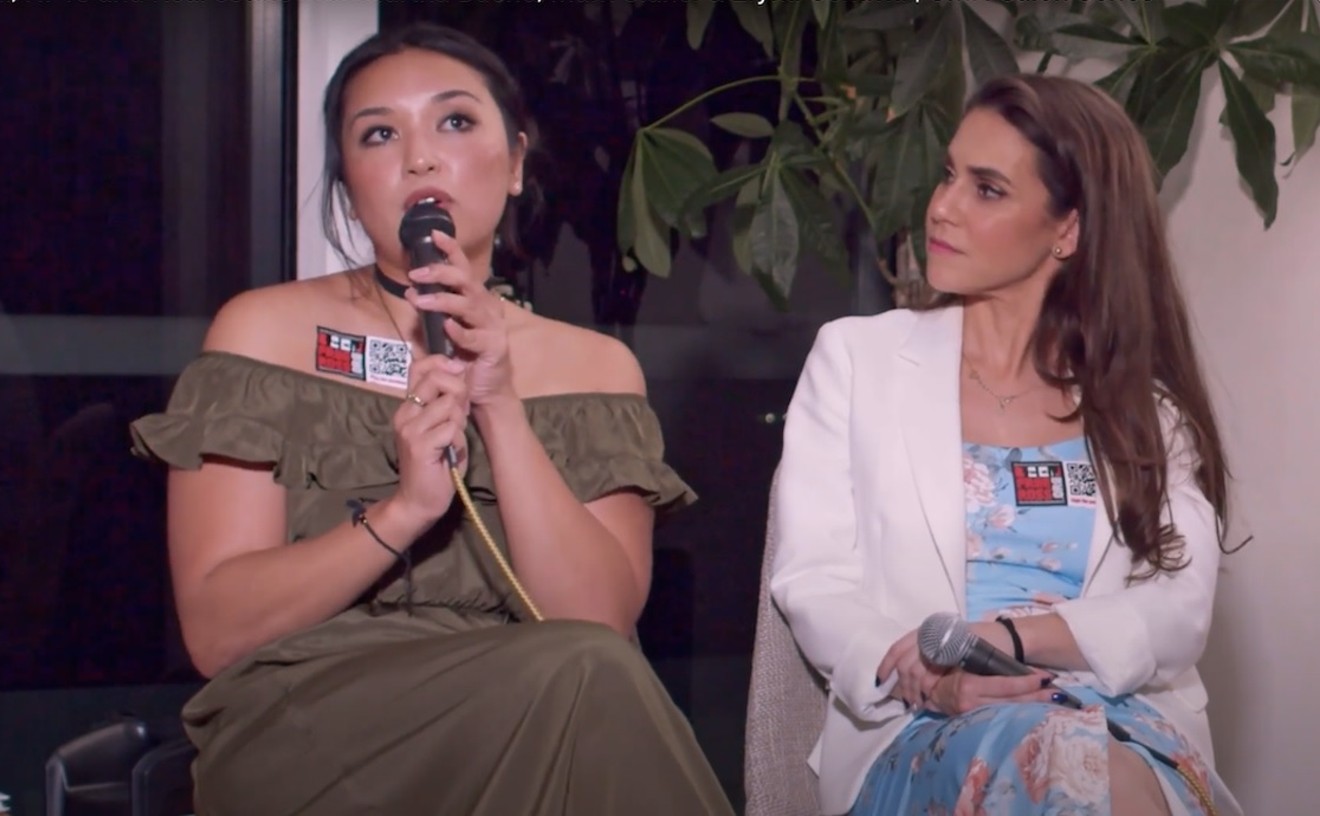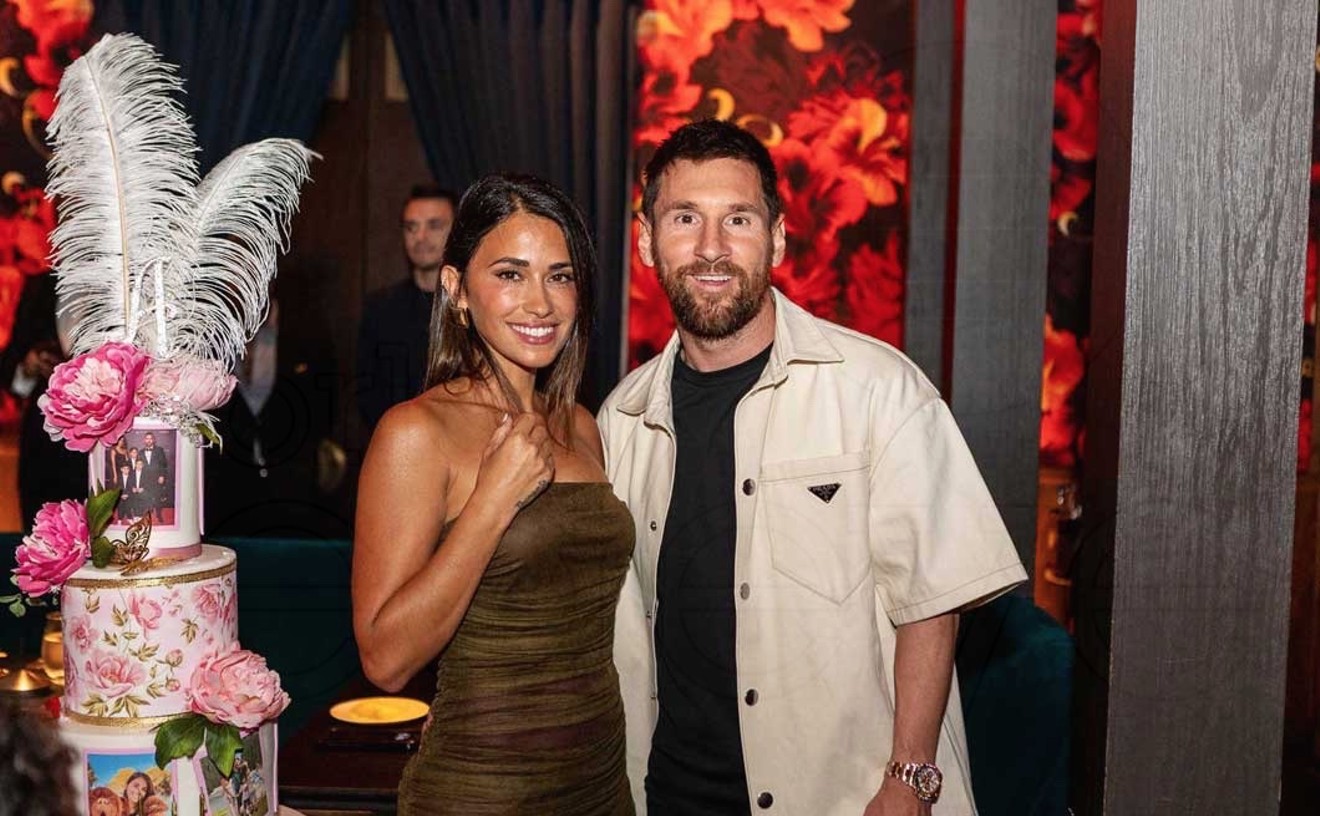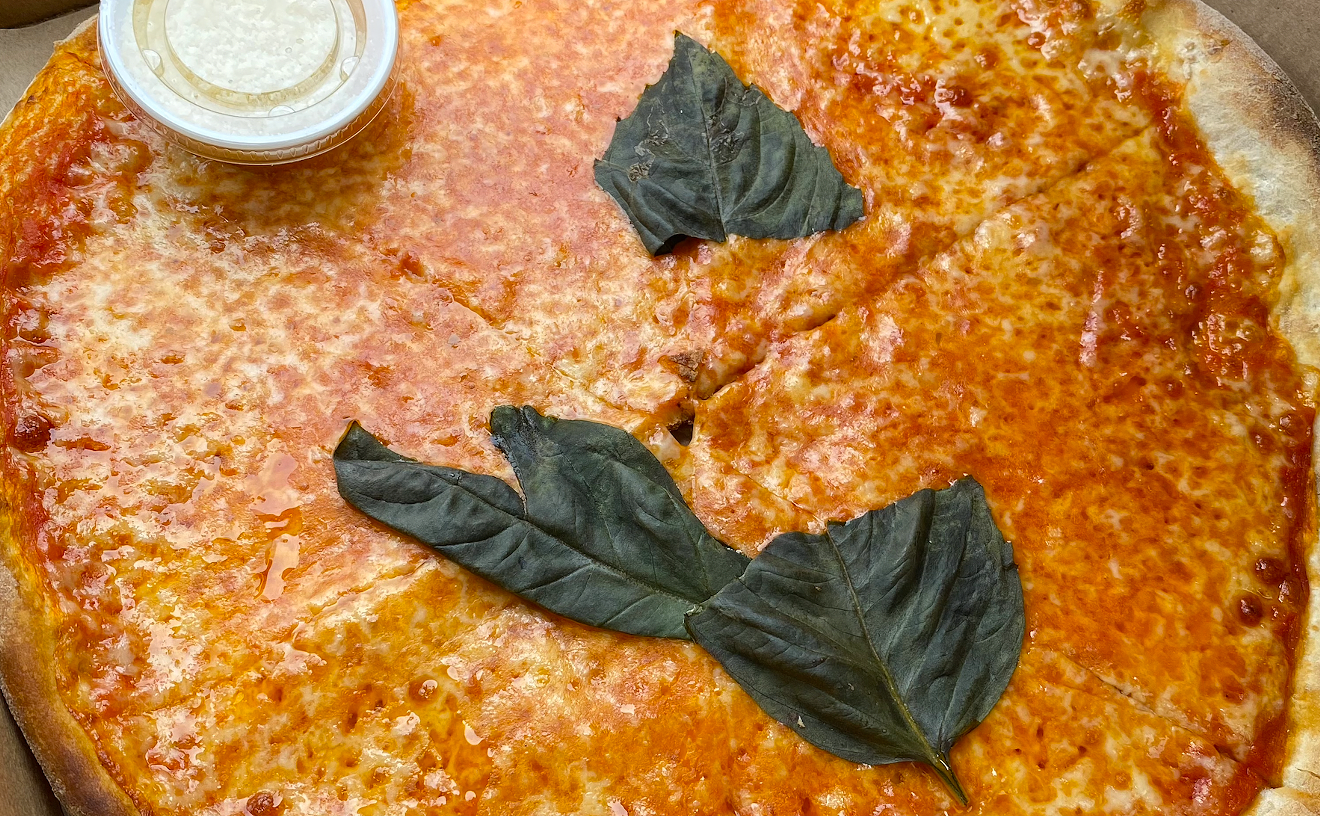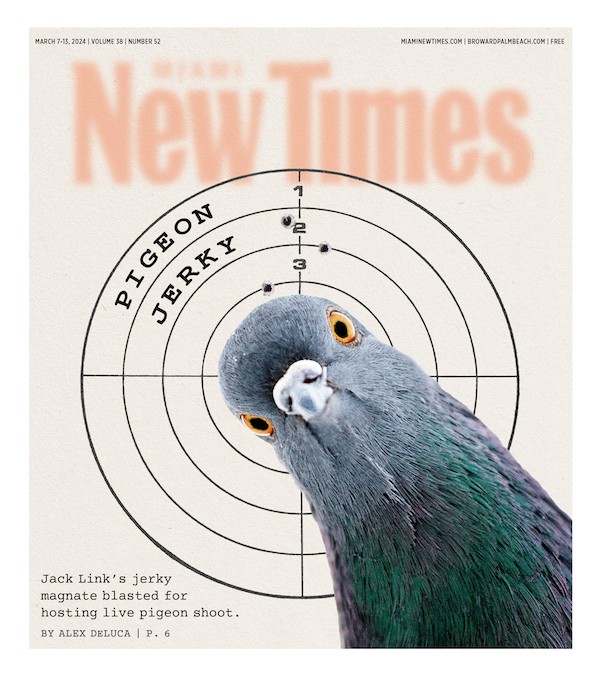Medical marijuana is legal in the District of Columbia, four territories, and 37 U.S. states — including Florida, which legalized medical marijuana via a constitutional amendment six years ago. But for years, the City of Miami has repeatedly blocked one entrepreneur's attempt to open a medical marijuana dispensary in downtown Miami, citing the federal Controlled Substances Act.
It didn't seem to matter that none of the 50 or so medical marijuana treatment centers in Miami-Dade and Broward counties have ever reported being raided by the federal government, or that doctors and medical professionals within Miami's city limits regularly prescribe medical marijuana to eligible patients — some of whom live with post-traumatic stress disorder, cancer, Crohn's disease, or epilepsy — who then must leave the city to fill their prescription.
For more than three years, Miami's city government has dragged its feet and erected defenses against Los Angeles entrepreneur Romie Chaudhari, denying him the certificate of use he needs to open his medical marijuana dispensary near nightclubs Space and E11even in downtown Miami — even after a federal judge and the city's volunteer Planning and Zoning Appeals Board ruled in Chaudhari's favor.
The city's zoning director appealed the PZAB's decision back in April 2021, but at the Miami City Commission meeting on Thursday, commissioners voted 3-2 to deny the appeal and allow Chaudhari to obtain the certificate of use he needs to finally open up a medical marijuana treatment center in the near future.
"I believe the state constitution is clear that we had the right to ban this use in our city and we have not done that. [Chaudhari has] applied in earnest under the lack of that ban, and I believe therefore we should grant their certificate of use," Commissioner Ken Russell, who possesses a medical marijuana card and has spoken publicly in support of medical marijuana, said from the dais.
Along with Russell, commissioners Christine King and Alex Diaz de la Portilla voted to allow the city's first medical marijuana dispensary to open. King stated in a previous meeting that medical marijuana would come to Miami sooner or later. Diaz de la Portilla was the swing vote on the issue, having previously said that he wanted to "come to a midpoint where we have some dispensaries so that people who really need it, with a true medical prescription, can access the medicine they need, but not have a proliferation of these dispensaries throughout the city."
Normally, the city's two oldest commissioners, Manolo Reyes and Joe Carollo, vote with Diaz de la Portilla — so much so that they're known as the three "Cuban amigos" of the dais. But Reyes and Carollo remain staunchly opposed to medical marijuana. (The former has said he worries about the "children" accessing marijuana gummies, while the latter has repeatedly referred to subject of the current debate as the "Cheech & Chong ordinance.")
To no one's surprise, Reyes and Carollo voted to deny Chaudhari the permit.
Reyes said they didn't want marijuana dispensaries to do "whatever they want" without regulation.
Diaz de la Portilla, in seconding Russell's motion to vote in favor of the applicant, addressed Reyes' concerns and said the city should regulate dispensaries going forward and limit how many can open.
"With the understanding that we are going to address the issues because Commissioners Reyes and Carollo are correct that we have to have a policy so we don't have a proliferation of these dispensaries throughout our city," Diaz de la Portilla said from the dais.
Last year, City Attorney Victoria Mendez's office brought the issue of the dispensary to a federal court, asking for a judge's opinion as to the legality of medical cannabis dispensaries in Florida. Last September, U.S. District Judge K. Michael Moore kicked the case back down to the state, ruling that the matter is best settled by a Florida court and that Miami had not done its job, in that the city had failed to write legislation to ban or regulate dispensaries, as the state law laid out.
"In other words, this case primarily involves the interaction between a municipality's failure to act and the operation of state law," Moore wrote in his ruling."Given the significance of the City’s inaction under [statute] 381.986 (11)(b)(1), the Court finds that Plaintiffs’ right to relief depends largely upon the construction or application of the state law — not federal law."
Evidently, Moore's action rattled Mendez.
"The federal judge did not do his job," Mendez told commissioners Thursday. "They failed to make a determination whether state law and federal law conflict, and what they did was they punted to the commission."
Attorneys for Chaudhari still have a pending lawsuit in Miami-Dade County civil court in which they asked a county judge for clarification on which law takes precedence in Florida: the state's pro-medical cannabis constitutional amendment or the federal government's Controlled Substances Act.
At Thursday's commission meeting, Mendez asked Chaudhari's attorney, Jeffrey Neiman, whether he would be withdrawing that. Neiman responded that he would contact her office with an update by the end of the day.
Neiman declined to comment to New Times for this story.
News
Weed Did It! Medical Marijuana Dispensaries Can Finally Open in Miami
The three-year debate on whether a medical marijuana dispensary can open in Miami is finally over.

New Times photo-illustration (via Getty Images)
[
{
"name": "Editor Picks",
"component": "17482312",
"insertPoint": "4",
"requiredCountToDisplay": "1"
},{
"name": "Inline Links",
"component": "18711090",
"insertPoint": "8th",
"startingPoint": 8,
"requiredCountToDisplay": "7",
"maxInsertions": 25
},{
"name": "Air - MediumRectangle - Combo - Inline Content",
"component": "17482310",
"insertPoint": "8th",
"startingPoint": 8,
"requiredCountToDisplay": "7",
"maxInsertions": 25
},{
"name": "Inline Links",
"component": "18711090",
"insertPoint": "8th",
"startingPoint": 12,
"requiredCountToDisplay": "11",
"maxInsertions": 25
},{
"name": "Air - Leaderboard Tower - Combo - Inline Content",
"component": "17482313",
"insertPoint": "8th",
"startingPoint": 12,
"requiredCountToDisplay": "11",
"maxInsertions": 25
}
]




